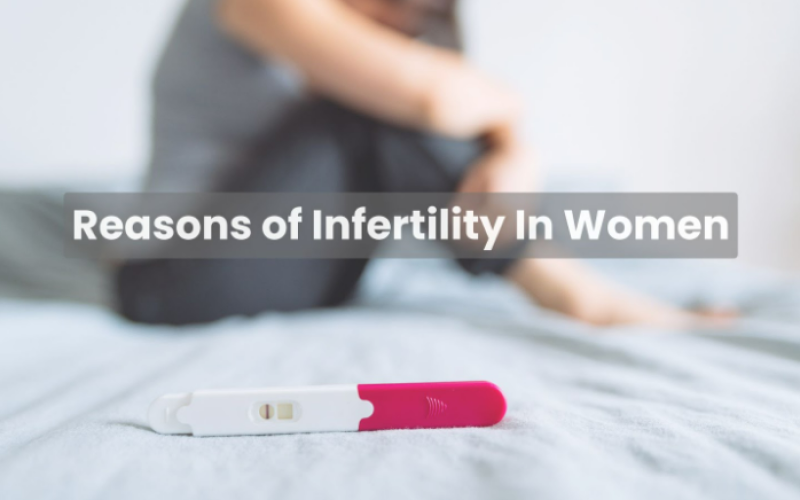Millions of women around the world suffer from infertility but understanding why it occurs will allow you to take the necessary actions. When a woman cannot conceive after 12 months of frequent, consistent intercourse with no birth control measures (or within six months of turning 35) it is considered medically to be infertile.
These are the top 10 reasons of infertility among women:
- Ovulation Disorders
The eggs may become un-released consistently due to hormonal imbalances, polycystic ovary syndrome (PCOS), or thyroid problems.
- Obstructed Fallopian Tubes
Older infections of the pelvis, endometriosis, or prior operations may result in scarring or blockage such that the sperm and egg do not have an opportunity to meet.
- Endometriosis
The presence of uterine-like tissue, which appears beyond the uterus, may lead to the development of inflammation, scars, and trouble with fertilization or implantation.
- Polyps and Uterine Fibroids
These benign uterine growths may impair implantation or even cause an increased risk of miscarriage.
- Age-Related Decline
Women naturally lose the quality and quantity of their eggs as they age. After the age of 35 fertility reduces greatly and even more so after 40.
- Primary Ovarian Insufficiency (Premature Ovarian Failure)
Ovulation becomes irregular or ceases entirely when the ovaries cease to work prematurely due to age.
- Pelvic Adhesions
Reproductive organs can be distorted by bands of scar tissue (usually caused by surgery or infection), which increases hindrances to the movement of eggs.
- Health problems that are long-term.
Reproductive health may be adversely affected by diabetes, autoimmune diseases, or the failure to treat celiac disease.
- Lifestyle Factors
Smoking, excessive alcohol, excessive exercise, or being much too thin or too fat can interfere with ovulation and hormone levels.
- Unexplained Infertility
It may be that no clear cause is identified even in the presence of testing. This is not to say there is no solution, it just implies that additional assessment or supervised treatment may be necessary.
When to Contact Your Doctor:
- Consult with a Fertility Specialist Quickly
You may like to set an appointment with a fertility specialist to begin testing in your endeavour to conceive in case you have been trying longer than a year (or 6 months in case of over 35 years).
- Have a Medical Examination
Consult your physician to test hormone levels, ovulation, fallopian tubes, and your medical history.
- Fertility-Friendly Lifestyle
Avoid smoking and excessive alcohol, eat balanced meals, maintain a healthy weight, and manage stress.
- Know Your Treatment Options
Depending on the cause, your doctor might prescribe medication or surgery, or assisted reproductive technologies such as IVF and ICSI.
- Get Emotional and Professional Help
Infertility is a devastating experience. This journey can be eased with supportive groups and counseling as well as a caring clinic.
Eraya Fertility Your Partner in Hope
Eraya Fertility is a clinic with expertise in the diagnosis and management of the various causes of infertility in women. We offer the most advanced diagnostics, state‑of-the-art treatments, and a truly caring team, to support you throughout your journey.
Your dream to be a parent is our mission at Eraya.
Contact us and we can start the journey.






